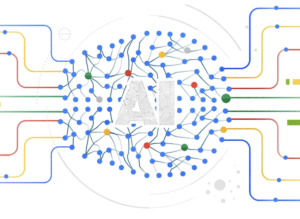

Machine learning developers face an expanded set of management issues beyond merely getting the code right, including the testing and validation of data used in ML models while handling an additional set of infrastructure dependencies. After deployment, those models will degrade over time as use cases evolve.
In response to growing calls for standardization of machine learning operations, cloud and tool vendors are promoting new services aimed at making life a bit easier for data scientists and machine learning developers. Among them is Google Cloud, which this week dropped a batch of cloud AI tools that include data pipelines, metadata and a “prediction backend” for automating steps in the MLOps workflow.
“Creating an ML model is the easy part—operationalizing and managing the lifecycle of ML models, data and experiments is where it gets complicated,” Craig Wiley, director of product management for Google’s cloud AI platform, noted in a blog post unveiling the MLOps services.
The “MLOps foundation” is perhaps the most compelling of the cloud AI tools unveiled this week by the public cloud and AutoML vendor (NASDAQ: GOOGL).
For starters, Google said Tuesday (Sept. 1) it would release a managed service for machine learning pipelines in October. Introduced earlier this year, the service uses pre-built TensorFlow components and templates to develop ML pipelines—a feature the company asserts would reduce the time and labor required to deploy and manage models.
Google noted that machine learning has complicated traditional DevOps practices such as continuous integration and delivery. ML models also require constant training and monitoring; the former for retraining candidate models for testing and deployment; the latter for error detection along with monitoring inference data and tracking the performance of production models.
“Our goal is to make machine learning act more like computer science so that it becomes more efficient and faster to deploy,” Wiley said.
The expanded AI platform also includes a machine language “metadata management” service designed to help developers monitor MLOps workflows and “model lineage.” Google said its metadata service is scheduled to preview by the end of September.
As for machine learning applications, the AI platform package also includes development tools for conversational AI applications such as chatbots and interactive voice response (IVR) bots. In one contact center AI use case, IVR bots can hand off customer service calls to live agents.
The development suite dubbed DialogflowCX provides app developers with access to machine learning models for natural language processing and text-to-speech. It also connects to telecom and cloud platforms, including, of course, Google’s.
The AI platform package also addresses the proliferation of internal MLOps systems among hyper-scalers like LinkedIn and Uber. Data science vendors such as Cloudera and Anaconda have noted that managing machine learning models in production has proven difficult due to “technology sprawl” and the relatively short shelf-life of production ML models.
Hence, MLOps advocates are seeking to place continuous model training and monitoring on the same plane as open source software and application interfaces.
Others such as Algorithmia are also offering MLOps suites with controls and features designed to monitor machine learning models in production.
Recent items:
An Open Source Alternative to AWS SageMaker
Growing Focus on MLOps as AI Projects Stall
It’s Time for MLOps Standards, Cloudera Says
November 21, 2024
- Snowflake Agrees to Acquire Open Data Integration Platform, Datavolo
- Denodo Platform 9.1 Brings New Advanced AI Capabilities and Enhanced Data Lakehouse Performance
- Teradata AI Unlimited in Microsoft Fabric Public Preview Now Available Through Microsoft Fabric Workload Hub
- Zilliz Cloud Powers GenAI Readiness with Cost-Effective Enterprise-Grade Performance and Scalability
- Snowflake and Anthropic Team Up to Bring Claude Models Directly to the AI Data Cloud
- Duality AI Launches EDU Subscription to Empower Aspiring AI Developers with Digital Twin Simulation and Synthetic Data Skills
- Striim Offers Mirroring Solution for SQL Server to Fabric at Microsoft Ignite
November 20, 2024
- Anaconda Unites Teams Across Data Skill Levels With Anaconda Toolbox for Excel
- StarTree Unveils Innovations to Tackle Real-Time Data Scaling Challenges
- Introducing Crunchy Data Warehouse, a Modern Postgres Analytics Platform
- Zettar Advances Data Movement in Collaboration with MiTAC Computing and NVIDIA
- Matillion Leverages Simbian’s AI to Streamline Security and Boost Efficiency
- CData Launches Free Connect Spreadsheets Product to Simplify Access to Enterprise Data for Excel and Google Sheets Users
- Graphwise Introduces GraphDB 10.8 with Multi-Method RAG for GenAI Applications
November 19, 2024
- Qumulo Delivers Over 1TBps Throughput with Cloud Native Qumulo on AWS
- New Scality ARTESCA All-Flash Appliance Accelerates Data Recovery
- tinyML Foundation Unveils Expanded Charter and New Name, EDGE AI FOUNDATION
- Neo4j Surpasses $200M in Revenue
- MongoDB Announces Expanded Collab with Microsoft
- Hitachi Vantara Unveils Hitachi iQ for NVIDIA HGX Platform



























